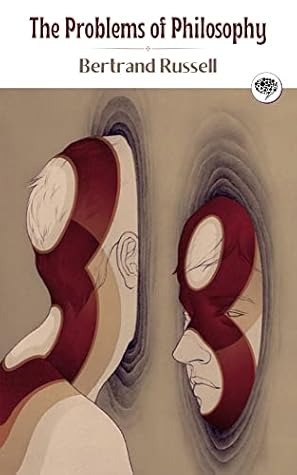More on this book
Community
Kindle Notes & Highlights
Thus thoughts and feelings, minds and physical objects exist. But universals do not exist in this sense; we shall say that they subsist or have being, where 'being' is opposed to 'existence' as being timeless. The world of universals, therefore, may also be described as the world of being. The world of being is unchangeable, rigid, exact, delightful to the mathematician, the logician, the builder of metaphysical systems, and all who love perfection more than life. The world of existence is fleeting, vague, without sharp boundaries, without any clear plan or arrangement, but it contains all
...more
Thus time-relations, like space-relations, are among those with which we are acquainted. Another relation with which we become acquainted in much the same way is resemblance. If I see simultaneously two shades of green, I can see that they resemble each other; if I also see a shade of red: at the same time, I can see that the two greens have more resemblance to each other than either has to the red. In this way I become acquainted with the universal resemblance or similarity.
This suggests a proposition which we shall
now endeavour to establish: namely, All a priori knowledge deals exclusively with the relations of universals. This proposition is of great importance, and goes a long way towards solving our previous difficulties concerning a priori knowledge.
Thus the difference between an a priori general proposition and an empirical generalization does not come in the meaning of the proposition; it comes in the nature of the evidence for it.
may now take a survey of the sources of our knowledge, as they have appeared in the course of our analysis. We have first to distinguish knowledge of things and knowledge of truths. In each there are two kinds, one immediate and one derivative. Our immediate knowledge of things, which we called acquaintance, consists of two sorts, according as the things known are particulars or universals. Among
particulars, we have acquaintance with sense-data and (probably)
with ourselves. Among universals, there seems to be no principle by which we can decide which can be known by acquaintance, but it is clear that among those that can be so known are sensible qualities, relations of space an...
This highlight has been truncated due to consecutive passage length restrictions.
Our immediate knowledge of truths may be called intuitive knowledge, and the truths so known may be called self-evident truths.
Our derivative knowledge of truths consists of everything that we can deduce from self-evident truths by the use of self-evident principles of deduction.
But let us imagine some insistent Socrates, who, whatever reason we give him, continues to demand a reason for the reason. We must sooner or later, and probably before very long, be driven to a point where we cannot find any further reason, and where it becomes almost certain that no further reason is even theoretically discoverable.
And the same holds for other logical principles. Their truth is evident to us, and we employ them in constructing demonstrations; but they themselves, or at least some of them, are incapable of demonstration.
Self-evidence, however, is not confined to those among general principles which are incapable of proof. When a certain number of logical principles have been admitted, the rest can be deduced from them; but the propositions deduced are often just as self-evident as those that were assumed without proof. All arithmetic, moreover, can be deduced from the general principles of logic, yet the simple propositions of arithmetic, such as 'two and two are four', are just as self-evident as the principles of logic.
First, there is the kind which simply asserts the existence of the sense-datum, without in any way analysing it. We see a patch of red, and we judge 'there is such-and-such a patch of red', or more strictly 'there is that'; this is one kind of intuitive judgement of perception.
The other kind arises when the object of sense is complex, and we subject it to some degree of analysis. If, for instance, we see a round patch of red, we may judge 'that patch of red is round'. This is again a judgement of perception, but it differs from our previous kind. In our present kind we have a single sense-datum which has both colour and shape: the colour is red and the shape is round. Our judgement analyses the datum into colour and shape, and then recombines them by stating that the red colour is round in shape.
The case of memory, however, raises a difficulty, for it is notoriously fallacious, and thus throws doubt on the trustworthiness of intuitive judgements in general.


